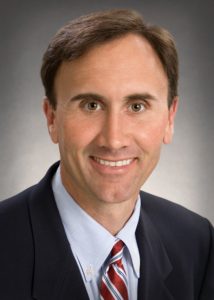 Washington, DC – Rep. Pete Olson (R-TX) and Rep. Gerald Connolly (D-VA) today acted to help save lives impacted by sudden cardiac arrest by introducing H.R. 5013, the Cardiac Arrest Survival Act. This bill will help increase the survival rate from sudden cardiac arrest (SCA) by eliminating the threat of frivolous lawsuits through development of a nationally uniform baseline of protection for persons who use an automatic external defibrillator (AED) while attempting to save a life during a medical emergency. Original cosponsors of H.R. 5013 include: Reps. Phil Roe (TN), Don Beyer (VA), Liz Cheney (WY), Neal Dunn (FL), Andy Harris (MD).
Washington, DC – Rep. Pete Olson (R-TX) and Rep. Gerald Connolly (D-VA) today acted to help save lives impacted by sudden cardiac arrest by introducing H.R. 5013, the Cardiac Arrest Survival Act. This bill will help increase the survival rate from sudden cardiac arrest (SCA) by eliminating the threat of frivolous lawsuits through development of a nationally uniform baseline of protection for persons who use an automatic external defibrillator (AED) while attempting to save a life during a medical emergency. Original cosponsors of H.R. 5013 include: Reps. Phil Roe (TN), Don Beyer (VA), Liz Cheney (WY), Neal Dunn (FL), Andy Harris (MD).
“In a cardiac emergency, defibrillation is the best defense and quick use of AEDs can save lives,” Rep. Pete Olson said. “The threat of lawsuits should never stand in the way of providing emergency medical assistance. This common sense solution provides peace of mind by removing this threat and will encourage greater deployment of AEDs in public and private establishments. Wider use of AEDs will reduce response times and could save an additional 36,000 lives per year.”
Rep. Gerald Connolly said, “Access to AEDs is critical to saving lives during a cardiac emergency. As Chairman of the Fairfax County Board of Supervisors I made it a priority that County buildings and schools deploy this lifesaving technology, and that staff have the knowledge and training to use these tools effectively. This legislation will ensure we don’t allow fear of liability or a patchwork of differing protections across the states to prevent an individual or business from taking all necessary measures to save a life.”
According to the Sudden Cardiac Arrest Foundation: In the U.S. alone, approximately 350,200 people experience EMS-assessed out-of-hospital non-traumatic SCA each year and nine out of 10 victims die. Approximately 60 percent of those victims could be saved if someone intervenes and responds by engaging the emergency system, performing CPR and locating and using an AED. Sadly, survival rates for out-of-hospital SCA victims have remained a low eight percent for thirty years. Immediate CPR and early defibrillation, using an AED, can more than double a patient’s chance of survival, but only if a person acts. Every minute a person goes without receiving defibrillation their chance of survival can decrease by 10%. The average response to a 911 call is over 7 minutes, leaving patients with almost no chance. Many lives could be saved if Automated External Defibrillators (AED), which are user-friendly so untrained bystanders can use them, were more widely available.

